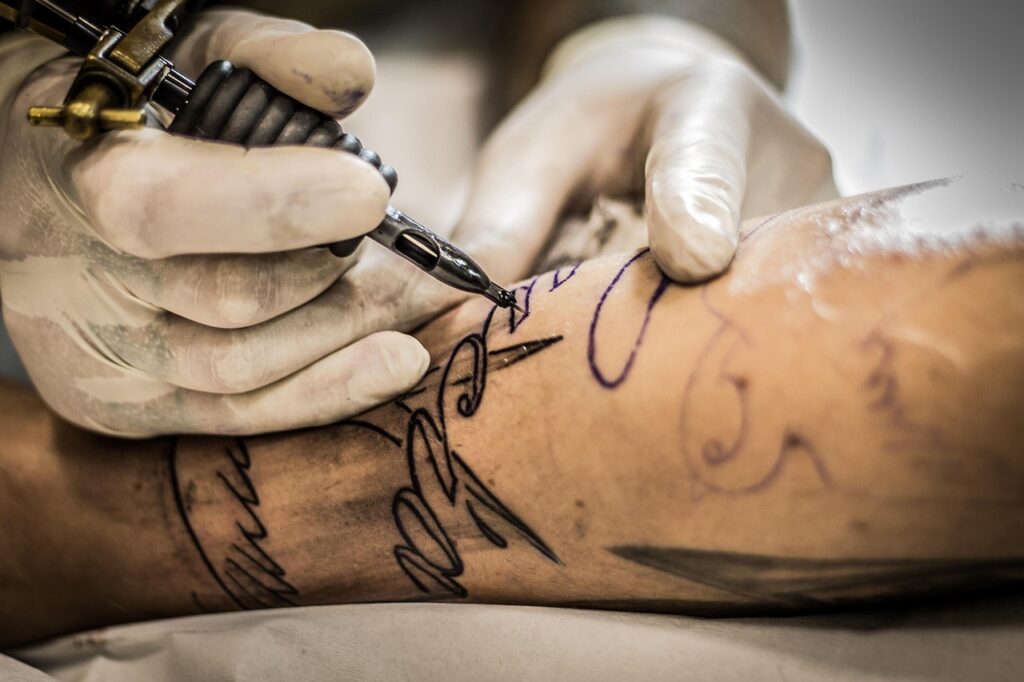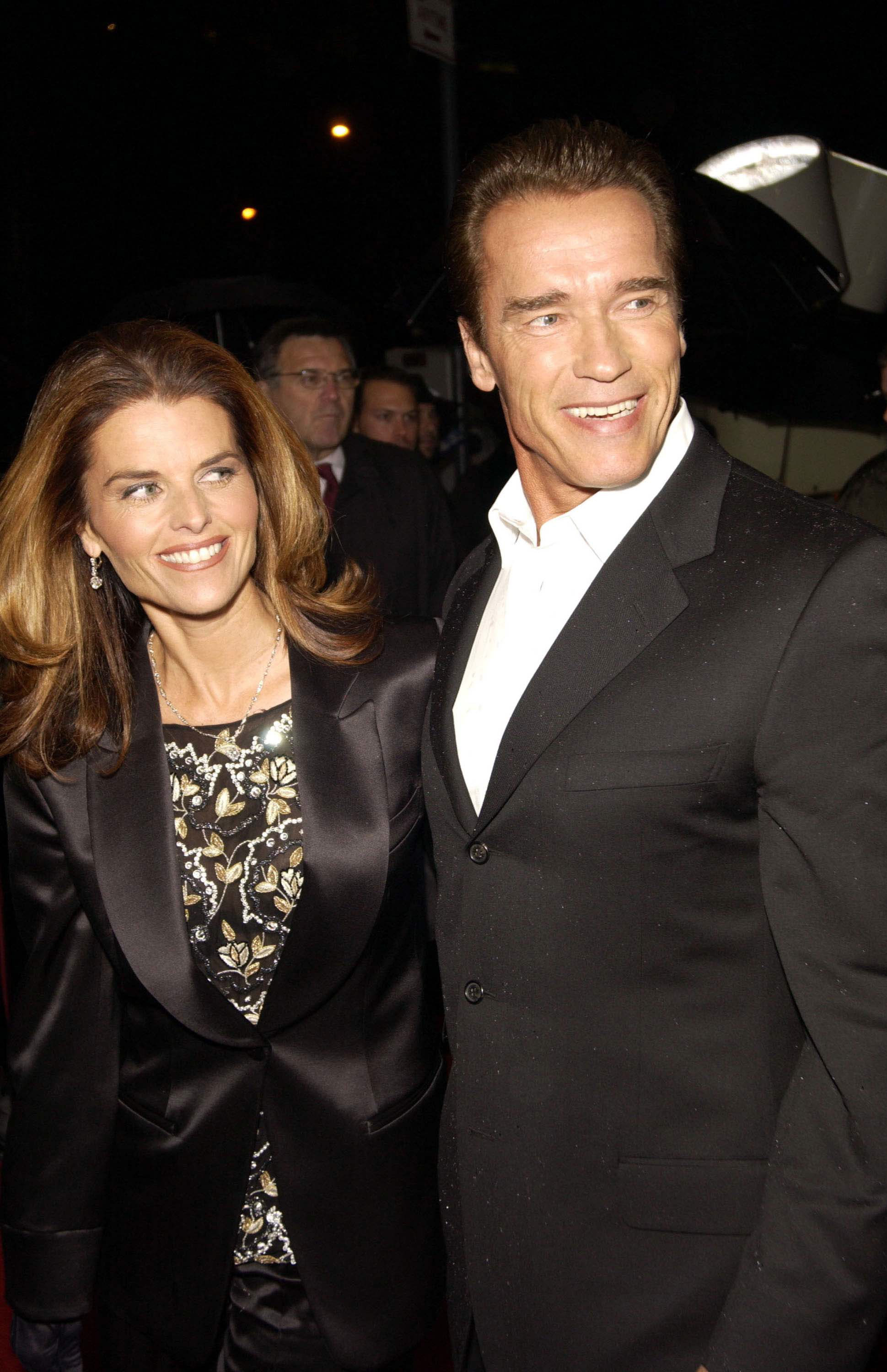
Maria Shriver and Arnold Schwarzenegger’s highly publicized marriage, once a beacon of celebrity power and political influence, ultimately ended in a long and arduous divorce. For years, their union seemed unshakeable, an unlikely blend of Hollywood glamor and Kennedy lineage. However, beneath the surface of red carpets and political campaigns, there were undeniable signs that this partnership, for all its outward strength, harbored vulnerabilities that would eventually lead to its dissolution.
Looking back at their journey, it becomes clear that certain underlying dynamics and pivotal moments hinted at the challenges awaiting them. These weren’t necessarily dramatic explosions, but rather subtle fissures that, over time, widened into chasms, ultimately breaking what was once a powerful alliance. Understanding these indicators offers a deeper insight into the complexities of their shared life and the personal tolls taken.
We delve into the initial sparks and subsequent strains that characterized their relationship, exploring the factors that suggested their paths, though intertwined for decades, were perhaps never truly aligned for the long haul. From early interactions to the profound impact of revelations, these are the signs that, in hindsight, spoke volumes about the trajectory of their marriage.
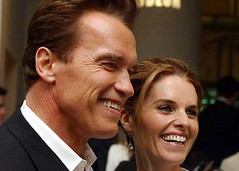
1. **The Initial Encounter and Focus on Physical Appearance**From the very beginning, a particular dynamic was established in Maria Shriver and Arnold Schwarzenegger’s relationship, one that, in retrospect, might have underscored a fundamental imbalance. When the two first met, Schwarzenegger made a comment about Maria’s body, rather than acknowledging her intelligence or personality. This seemingly innocuous observation set a precedent for how Maria might have been perceived or felt valued within the relationship.
Such an emphasis, especially in the early stages of a connection, can subtly shape expectations and self-perception. For a woman as accomplished and intelligent as Maria Shriver, being initially acknowledged for her physical attributes rather than her intellect or spirit could have been an early, albeit quiet, indicator of where her personal contributions might sometimes be overshadowed in the public eye. It speaks to a potential disparity in how their respective strengths were prioritized or even seen.
In a world often obsessed with appearances, especially concerning public figures, this initial interaction highlights a pervasive cultural pressure. It suggests that while Maria brought immense intellectual and personal depth to the table, the focus, even from her future husband, inadvertently leaned towards the superficial. This early framing could have contributed to a recurring theme throughout her marriage, where her own identity struggled to shine independently.
Read more about: An Exclusive Deep Dive into the Phenomenal World of Shaun the Sheep and Its Enduring Global Appeal
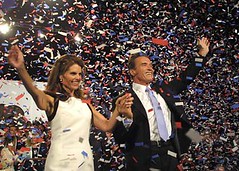
2. **Feeling Unnoticed and Overlooked in the Marriage**As their marriage progressed, Maria Shriver began to feel increasingly unnoticed within the relationship. The context describes how she was often overlooked by many in favor of her superstar husband, Arnold Schwarzenegger. This feeling of being secondary, even in her own partnership, speaks volumes about the inherent challenges of being married to a global icon with an overwhelming presence.
In a dynamic where one partner consistently commands more public attention, it’s easy for the other’s contributions and individuality to recede into the background. Maria, herself a prominent figure from a legendary political family, was accustomed to a life of significance. To then find herself feeling overshadowed within her own marriage could create a deep sense of disconnect and a quiet erosion of personal validation.
This sentiment of being overlooked isn’t just about public recognition; it extends to the private sphere where emotional needs for affirmation and acknowledgment are crucial. When one partner consistently feels unseen, it can lead to a gradual build-up of resentment and a sense of isolation, even when physically present alongside a loved one. Such an imbalance can create a profound void that becomes difficult to fill over time.
Read more about: The Enduring Enigma of Linda Darnell: Unraveling the Tumultuous Life and Tragic Death of a 1940s Hollywood Star
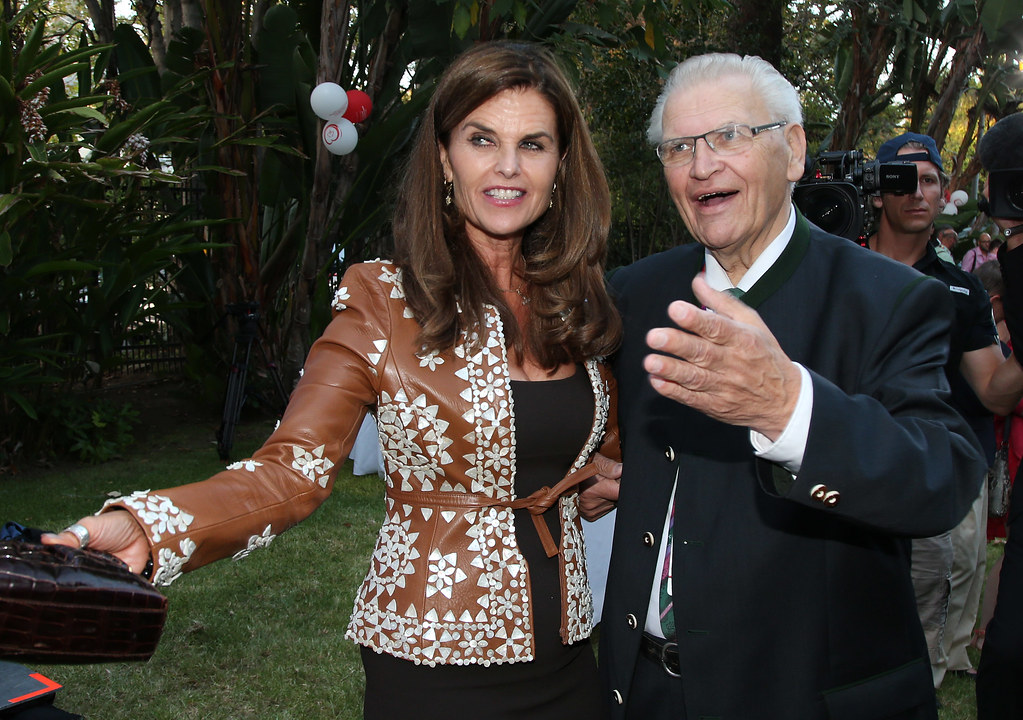
3. **Career Sacrifices for His Political Ambitions**A significant turning point, revealing the sacrificial nature of Maria Shriver’s role in the marriage, came with Arnold Schwarzenegger’s entry into politics. In 2003, when Schwarzenegger decided to run for Governor of California, Maria was forced to resign from her established and respected career as a journalist. This was not a minor adjustment but a fundamental reordering of her professional life.
This sacrifice illustrated a clear prioritization of Arnold’s career over her own, a common yet challenging aspect of many high-profile marriages. For Maria, a driven and accomplished journalist, stepping away from her passion to support her husband’s political aspirations meant putting her personal professional identity on hold. It marked a moment where her individual ambitions took a backseat to the collective brand of the Schwarzenegger-Shriver partnership.
While supportive spouses often make adjustments, the abrupt end to her journalism career for the sake of his political run underlined a powerful dynamic of deference. Such profound professional compromises, though made out of love and commitment, can accumulate over years, potentially fostering a sense of lost self or unspoken regret that can simmer beneath the surface of a seemingly successful marriage. These decisions often carry more weight than initially perceived, impacting long-term fulfillment.
Read more about: Meryl Streep at 75: Peering into the Hollywood Doyenne’s Timeless Performances and Enduring Influence
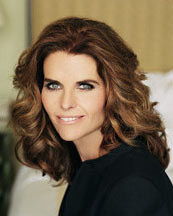
4. **The Secret Affair and Paternity Revelation**Perhaps the most devastating and widely reported sign of their marriage’s fragility was the revelation, 25 years into their union, that Arnold Schwarzenegger had secretly cheated on Maria and fathered a child with their housekeeper. This bombshell brought to light a deep betrayal that had been concealed for over a decade, shattering the foundation of trust upon which any marriage is built.
This secret life, maintained for so long, signifies a profound disconnect and a stark contrast between their public image and private reality. The existence of a hidden child, Joseph Baena, with a member of their household staff, speaks to an extraordinary breach of fidelity and a sustained pattern of deception. Such a profound betrayal is not merely a sign of trouble but often the definitive rupture point for a marriage.
The revelation was not just about infidelity; it was about the profound violation of trust and the public humiliation that followed. For Maria, learning about this secret within her own home, and subsequently having it exposed to the world, would undoubtedly lead to irreparable damage to her perception of the relationship and her husband. This act of disloyalty was a clear and unambiguous indicator that the marriage, as it was understood, could not endure.
Read more about: Beyond the Red Carpet: 10 Classic Hollywood Scandals That Rocked the Golden Age
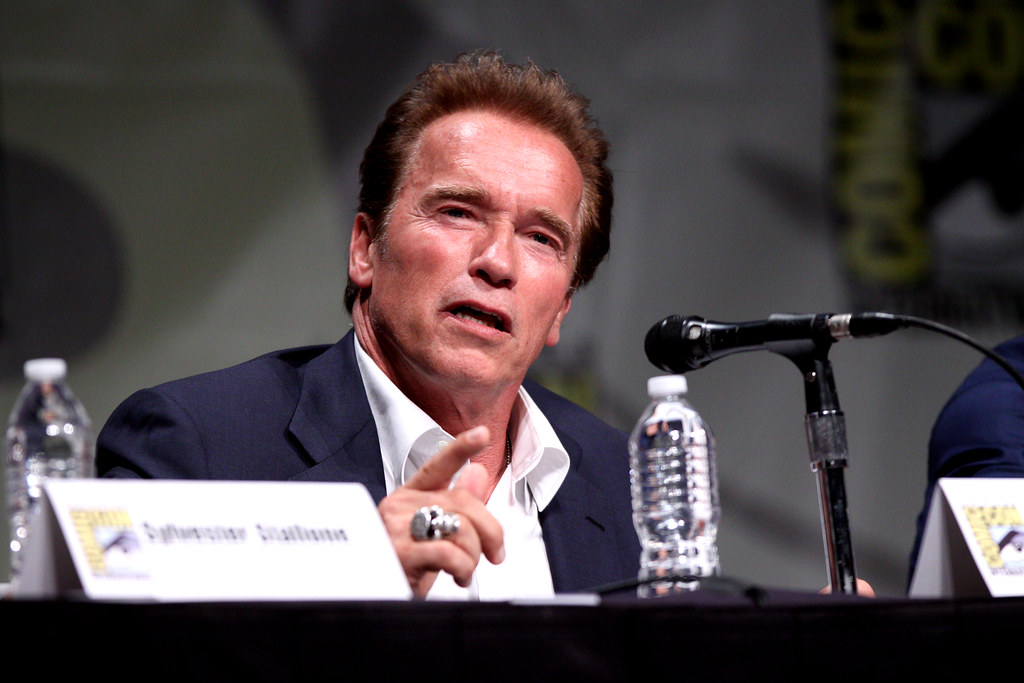
5. **The Devastating, Life-Altering Blow to Self-Confidence**The impact of Arnold Schwarzenegger’s infidelity and lies extended far beyond the immediate shock of betrayal. The huge media frenzy that erupted from this scandal deeply destroyed Maria Shriver’s self-confidence and sense of self-worth. This personal devastation is a powerful indicator of the profound toll the marriage’s unraveling took on her, suggesting underlying vulnerabilities that were exacerbated by the public nature of the breakup.
Maria, a woman who had dedicated her life to her family and career, suddenly found herself grappling with an identity crisis fueled by public scrutiny and private heartbreak. She revealed in her book, “I Am Maria,” that by the time she turned 55 in 2010, she was “barely able to get out of bed,” describing the period as when “all hell seemed to break loose.” This level of personal breakdown points to a deeply ingrained pain that the marriage, and its subsequent implosion, unearthed.
To have one’s self-perception so thoroughly shattered indicates that the foundations of her identity were intricately tied to her role within that marriage. The betrayal, coupled with the loss of her mother and her “First Lady” job around the same time, created a perfect storm that left her feeling completely broken. “It broke my heart, it broke my spirit, it broke what was left of me,” she wrote, signaling a life-altering blow that few relationships can withstand.

6. **Loss of Identity and Career in the Aftermath**Following the separation, Maria Shriver experienced a profound loss of identity, feeling “unsure now of who I was, where I belonged.” This sense of displacement was deeply intertwined with the further loss of her career, as her jobs had inadvertently become dictated by her husband’s trajectory. She was forced to give up her position as the First Lady of California when her husband’s term ended, a role she had taken on after leaving her journalism career.
This double blow—the loss of her marriage and the professional roles that had defined a significant part of her adult life—left her in a precarious emotional state. The context highlights her feeling “consumed with grief and wracked with confusion, anger, fear, sadness, and anxiety.” This isn’t merely the pain of a breakup; it’s the profound disorientation of losing fundamental pillars of one’s existence, making it clear how deeply she had integrated her identity with her marital and public roles.
The narrative elements in People Magazine often delve into these relatable human experiences, even for high-profile individuals. Maria’s struggle to reclaim her self-identity, post-divorce and post-career sacrifices, illustrates how intertwined her personal and professional lives had become with Arnold’s. This dependency on external roles for her sense of self, and the subsequent void when those roles disappeared, was a critical sign that the marriage had not fostered an environment for her individual, independent growth and resilience over the long term.
Read more about: When the Credits Roll: Deconstructing Cinema’s Most Potent Final Scenes and Their Lasting Messages
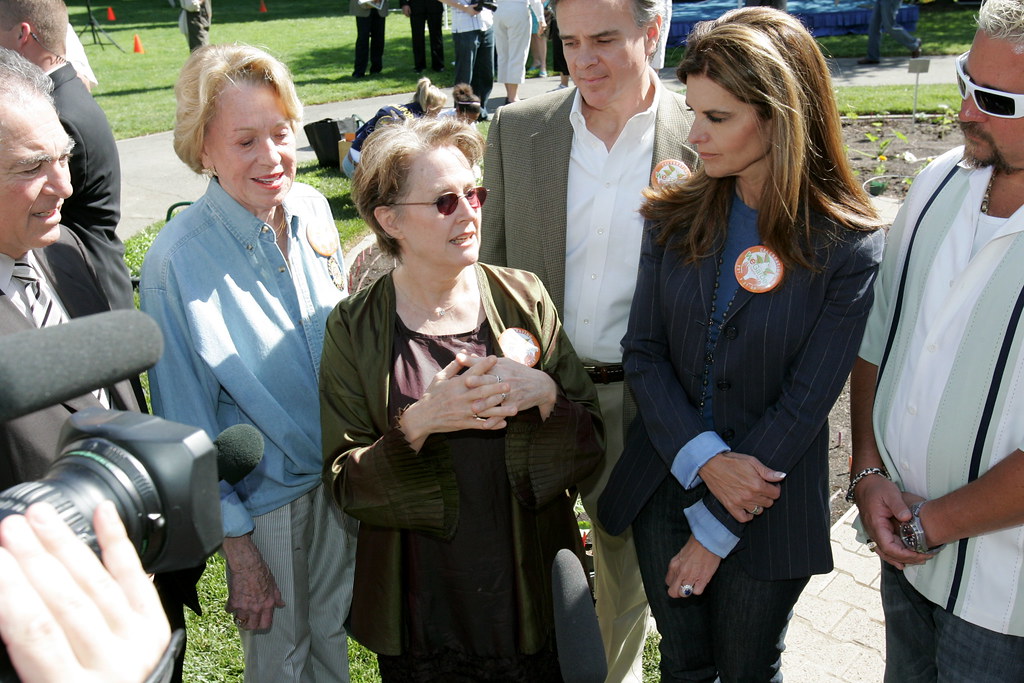
7. **Arnold Schwarzenegger’s Candid Reflections on His “Failure”**After the dust settled and the public revelations had run their course, Arnold Schwarzenegger himself offered a remarkably candid reflection on the dissolution of his marriage to Maria Shriver. Speaking in a new interview with The Hollywood Reporter published in May 2023, Schwarzenegger didn’t shy away from assigning blame, referring to his divorce as “my f—up” and unequivocally stating, “It was my failure.” This powerful acknowledgment provided a stark contrast to any potential deflection, highlighting his personal accountability in the marriage’s undoing and offering a rare glimpse into his private remorse.
He spoke openly about the profound personal impact the separation had on him, sharing, “I had personal setbacks, but this was, without any doubt, the biggest setback and the biggest failure.” This sentiment was echoed in a 2015 SiriusXM radio show interview with Howard Stern, where he further elaborated on the deep sense of responsibility. He felt it keenly, stating, “Without any doubt. Not only failure, but you feel like, ‘I’m to blame for it. It was me that screwed up.’ And you can’t point the finger at anyone else. So yeah, I was disappointed in it. It’s always easy to be smart in hindsight.” These reflections paint a picture of a man wrestling with profound regret over his past actions.
Despite the deep regret and personal accountability, Schwarzenegger also shed light on their evolving post-divorce relationship, emphasizing a functional co-parenting dynamic that has persevered. He candidly stated that he doesn’t miss being married, yet affirmed, “I have a wonderful girlfriend, (physical therapist) Heather Milligan, who is very successful. I’m really proud of her, and I love her.” Crucially, he added a powerful testament to his enduring respect for his former wife: “At the same time, I love my wife. She and I are really good friends and very close, and we are very proud of the way we raised our kids.” This speaks to a mature, albeit complex, evolution of their bond, prioritizing their family unit.
The former governor revealed that despite their past difficulties and the public nature of their split, they consistently make an effort to spend significant family time together for their children’s sake. “Even though we had this drama, we did Easter together, Mother’s Day together, the Christmases together, all birthdays — everything together,” he shared. This dedication to maintaining family continuity, even through separation, illustrates a shared commitment to mitigating the emotional impact on their children. It’s a powerful testament to their enduring parental partnership, proving that love for their kids transcended personal marital pain. He even mused, with a touch of his characteristic bravado, “If there’s Oscars for how to handle divorce, Maria and I should get it for having the least amount of impact on the kids.”
Schwarzenegger also touched on the distinct qualities they each brought to their children’s upbringing, acknowledging Maria’s profound influence. He observed, “The sweetness and kindness you see in them, that’s from my wife. The discipline and work ethic is from me.” This insight not only highlights their complementary parenting styles but also serves as a subtle tribute to Maria’s character, acknowledging her essential contributions to their children’s well-being and development even after their paths diverged. His reflections ultimately paint a picture of a man who, while owning his mistakes, has found a way to navigate a profoundly altered family landscape with a degree of grace and continued affection for his former spouse.
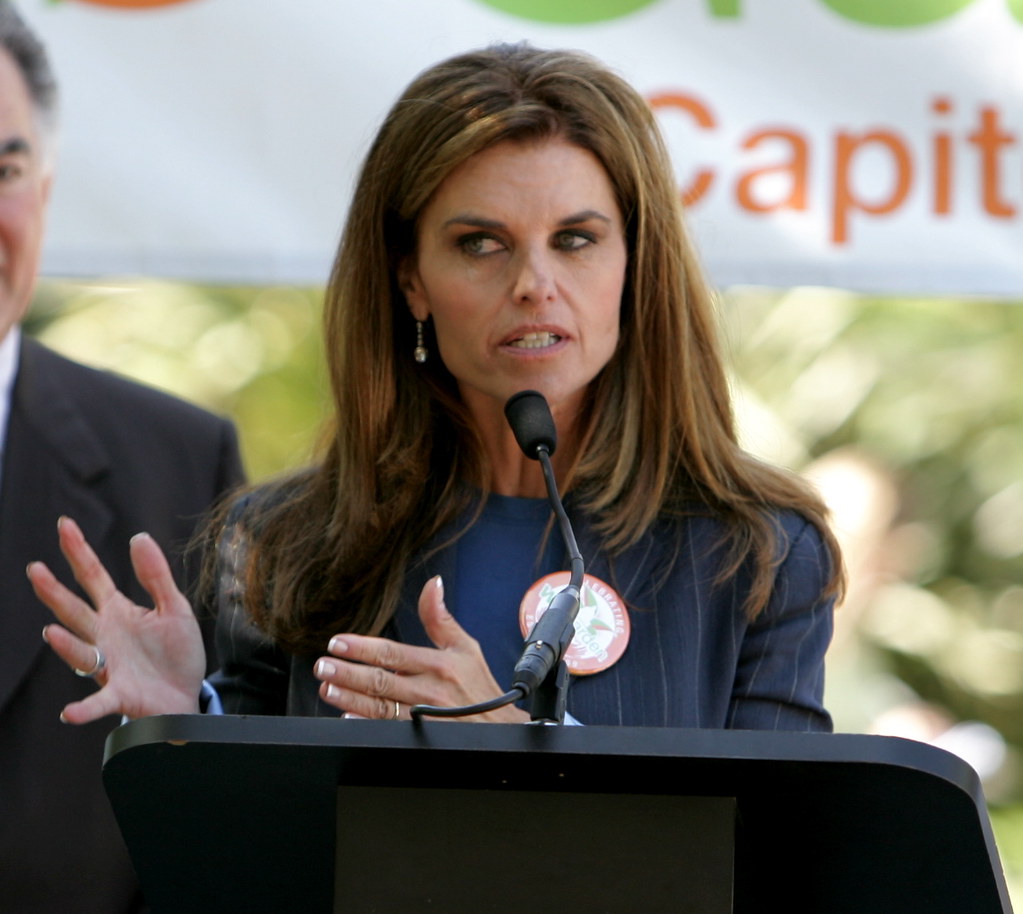
8. **The Prolonged and Arduous Decade-Long Divorce Process**One of the most telling signs of the underlying complexities, entrenched emotions, and significant assets involved in Maria Shriver and Arnold Schwarzenegger’s relationship was the sheer duration and arduous nature of their divorce proceedings. Filed by Maria in July 2011, shortly after the devastating public revelation of Arnold’s secret child, their divorce wasn’t officially finalized until a staggering ten years later, in December 2021. This decade-long legal and emotional journey, for a couple whose union once epitomized Hollywood glamor and political power, speaks volumes about the depth of their entanglement and the intricate challenges involved in disentangling their lives.
The exceptionally prolonged timeline suggests that their split was far from straightforward, likely involving intricate negotiations over shared finances, extensive property holdings, and the complex future of their interwoven public and private identities. Such an extended period of separation, spanning a full decade without official resolution, would undoubtedly have kept them both in a state of prolonged emotional limbo. This protracted legal dance served as a constant, public reminder of the monumental shift occurring in their family’s foundation, marking a slow, public unwinding of what was once a powerful and prominent alliance. The delay points to deep-seated issues that required immense time and effort to resolve.
Arnold Schwarzenegger himself described this protracted period as exceptionally tough, admitting that the divorce “was very, very difficult in the beginning.” This candid remark underscores the significant emotional toll on both parties, highlighting that even for figures accustomed to navigating intense public scrutiny, the personal pain of such a significant rupture remained raw, challenging, and deeply impactful to process. The ten years it took to reach a final agreement serve as a poignant indicator of the profound layers that needed to be painstakingly addressed, negotiated, and ultimately resolved before they could truly move forward independently and define their new individual realities.
Read more about: Unveiling the Enduring Strength: Tragic Details That Shaped the Marrs Family’s Journey on HGTV
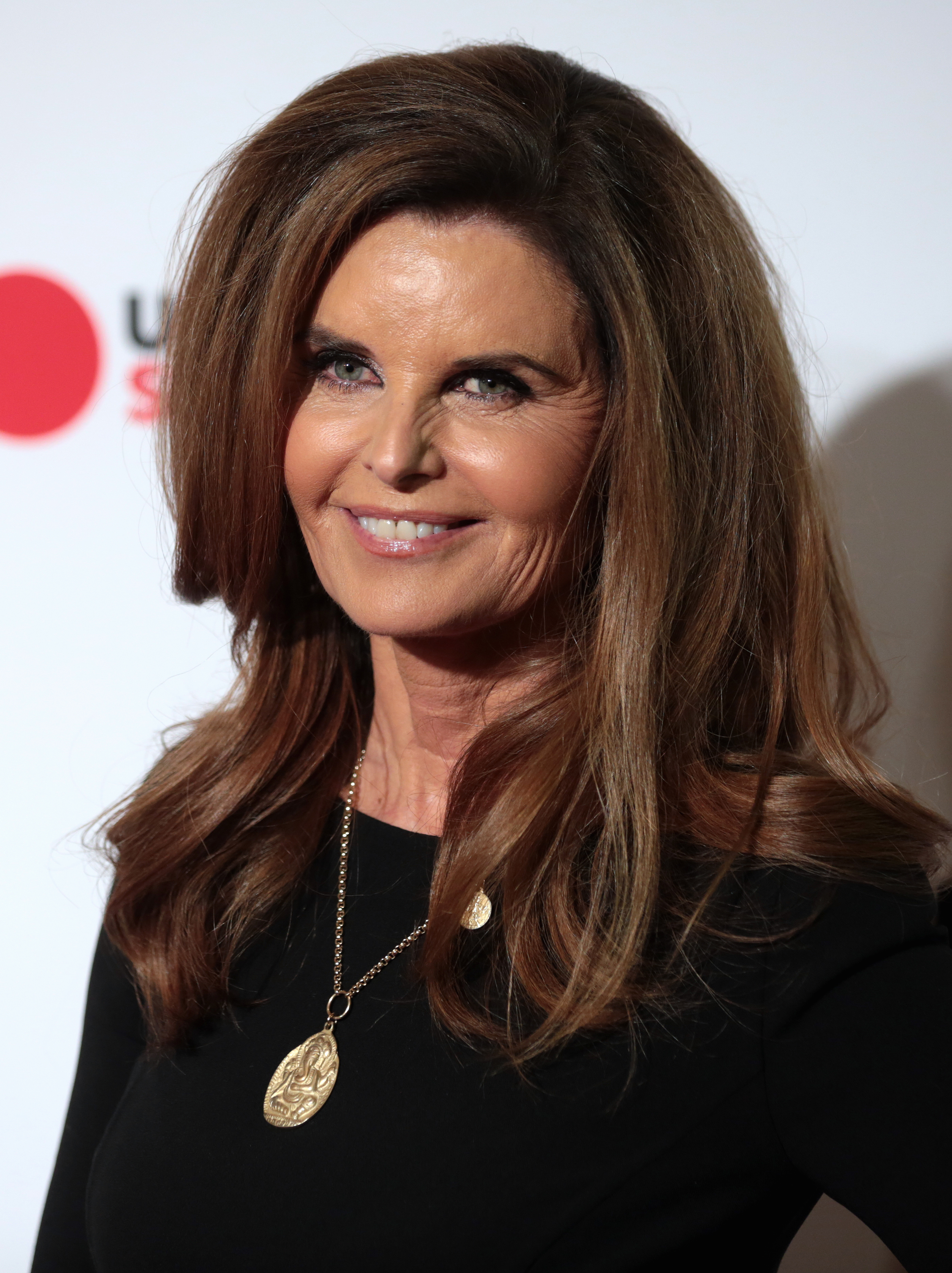
9. **The Counterproductive Experience with Marriage Counseling**In an earnest attempt to salvage their marriage, or perhaps to simply gain clarity amidst the chaos, Maria and Arnold engaged in marriage counseling. However, this intervention, often seen as a beacon of hope for troubled couples, was later described by Arnold Schwarzenegger as profoundly unhelpful, even detrimental, marking another significant indicator that their marriage was destined not to last. His strong feelings about this therapeutic experience offer a fascinating glimpse into the specific dynamics that ultimately prevented reconciliation and underscored the intractable nature of their core issues.
During his revealing 2015 interview on Howard Stern’s SiriusXM radio show, Schwarzenegger was remarkably blunt and unreserved about the counseling experience. “It was the biggest mistake I’ve ever made,” he declared, pulling no punches and leaving no room for ambiguity. He went on to describe the therapist in scathing terms, expressing a complete lack of faith in the process: “That guy was so full of s—. He said more crap and more nonsense.” This powerful and visceral reaction suggests a fundamental mismatch with the counseling approach, or perhaps an inherent inability for the couple to find common ground or engage in productive dialogue within that structured setting, further solidifying the chasm between them.
The former governor’s assessment of the counseling was unequivocally negative, culminating in his strong conclusion that the entire process “was absolutely counterproductive to our future relationship.” This statement is particularly telling; it indicates that far from helping them bridge their profound divides, the counseling actually exacerbated existing tensions or even introduced new points of contention and resentment, rather than fostering understanding or healing. For a couple whose issues were so deeply rooted and complex, an ineffective or poorly matched therapeutic intervention could only serve to reinforce the idea that their marriage was, in fact, beyond repair, ultimately pushing them further apart rather than drawing them closer together in a meaningful way.
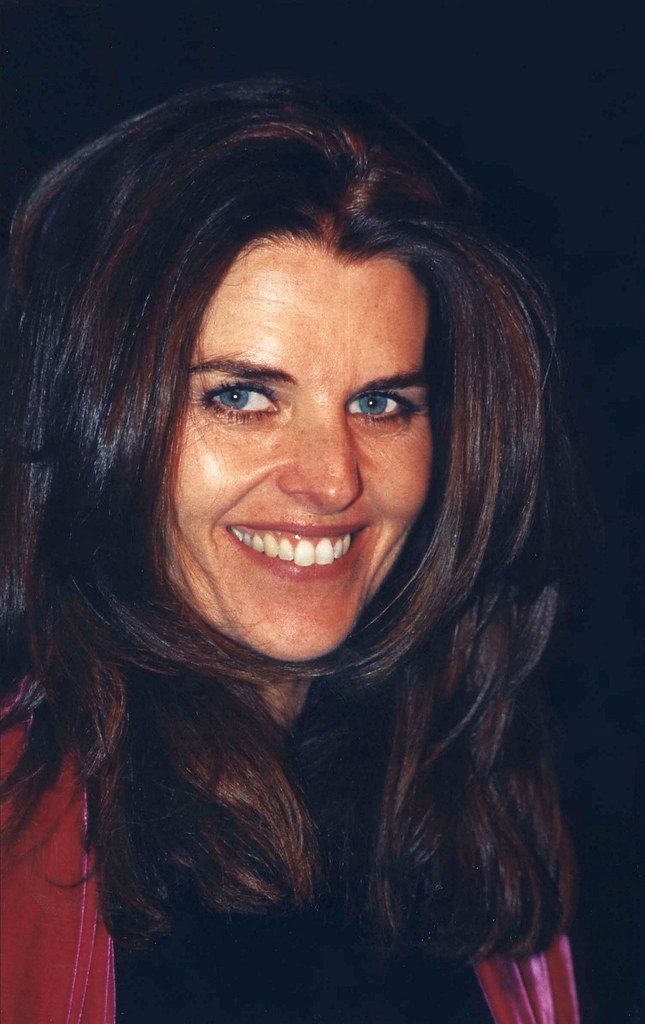
10. **Maria Shriver’s Quest for Self-Discovery: The Convent’s Profound Message**Amidst the profound rubble of her marriage’s collapse and the ensuing personal devastation, Maria Shriver embarked on a deeply personal and often solitary journey of self-discovery, a quest for a renewed sense of self and purpose. One particularly poignant and revealing step in this intensely private process, disclosed in a February 2023 episode of the “Making Space with Hoda Kotb” podcast, was her pilgrimage to a cloistered convent. This unexpected act of seeking solace and spiritual guidance in profound silence speaks volumes about the depth of the emotional and spiritual crisis she was enduring in the aftermath of her divorce and other significant losses.
Her stated intention at the convent was crystal clear: to find “advice” and to simply “be in silence,” a stark and necessary contrast to the relentless media frenzy, public scrutiny, and constant noise that had defined so much of her high-profile life for decades. It was within this quiet, reflective, and deeply sacred space that she received a powerful and transformative message from the reverend mother, a moment that would forever alter her perception of her own path. “She said, ‘I think you came here looking for permission,’” Shriver recalled, a statement that immediately cut to the core of her internal struggle, revealing a deep-seated need for external validation or authorization for her own existence.
The reverend mother’s subsequent words provided Maria with the exact liberation she profoundly needed at that critical juncture. “‘You can’t come live here… but you do have permission to go out and become Maria,'” she was told, a profound and liberating instruction. This powerful message was a turning point, granting her the internal freedom to reclaim her identity, to step out from the long shadow of her roles as wife, Kennedy, and First Lady, and to embrace who she truly was, unburdened by past expectations. It was an invitation to forge her own independent path, authentically and without apology.
Maria elaborated on the immense personal impact of this moment, explaining, “I had never given myself permission to — to feel, to be vulnerable, to be weak, to be brought to my knees. And the world did it to me. And then I was like, ‘OK, God, let’s go.’” This profound moment of acceptance, vulnerability, and self-permission was absolutely critical in her healing journey. It marked a clear and decisive pivot towards independent growth, resilience, and a deeper understanding of her own emotional landscape, recognizing that true strength often emerges from acknowledging one’s weaknesses and embracing the full spectrum of human experience. It was the moment she gave herself permission to simply *be*.
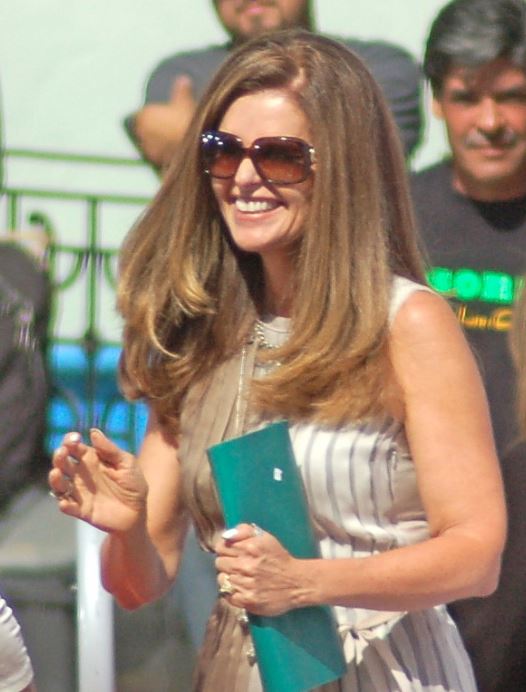
11. **Finding Peace and a New Voice Through Poetry**Following the raw vulnerability unearthed by her convent visit and the systematic dismantling of her old life, Maria Shriver discovered a profoundly powerful and unexpected avenue for healing and self-expression: writing poetry. This creative outlet became a truly transformative tool, enabling her to meticulously process the deep emotional wounds and long-suppressed traumas that had accumulated over a lifetime, especially intensified in the turbulent wake of her high-profile divorce and other significant personal losses. It offered a quiet, intimate space for profound introspection and emotional release.
As she candidly detailed in her upcoming book, “I Am Maria: My Reflections and Poems on Heartbreak, Healing, and Finding Your Way Home,” Shriver immersed herself deeply in this therapeutic process, describing how she “started writing from a deep place within.” This intimate act of writing allowed her to confront long-suppressed emotions head-on and to articulate a newfound, clearer understanding of herself. Through the verses of her poetry, she began to painstakingly unravel the complex layers of her identity, particularly her lifelong struggle to live up to “impossible” standards. She grappled with the pervasive feeling of not being “big enough, a good-enough daughter, sister, wife, mother, journalist,” revealing a profound internal pressure she had carried for years.
This introspective and often challenging journey through poetry led Maria to a profound and liberating realization about her own self-measurement and her entrenched tendency to avoid grief and pain. “I found a woman who had insisted on measuring herself by some impossible standard that guaranteed she’d come up short and feel bad about herself no matter what,” Shriver wrote, in a moment of stark, courageous self-awareness. She also discovered “someone who had spent a lifetime avoiding grief,” a deeply unsettling truth that her poetry forced her to confront, rather than evade.
The act of writing poetry, by allowing this “lifetime of dissociated grief and trauma” to be “released,” became, in her own powerful words, akin to a “tsunami.” This cathartic release swept away the emotional debris, clearing a vital path for genuine healing, profound self-acceptance, and a stunning personal transformation. Poetry, for Maria, was far from being merely a hobby or a pastime; it was, quite literally, a saving grace. It helped her articulate her deepest pain, reclaim her own narrative, and ultimately move into a more peaceful, authentic, and self-defined chapter of her life, signaling a powerful journey from heartbreak to healing.
Read more about: John McQueen: A Legacy Woven from Burrs, Bark, and Vision — Exploring the Life of a Craft Pioneer
Maria Shriver and Arnold Schwarzenegger’s story, while played out on a grand public stage, ultimately reflects universal human experiences of love, betrayal, sacrifice, and the arduous, often lonely path to self-reclamation. Their journey reminds us that even the most seemingly unshakable unions can harbor profound vulnerabilities, and that sometimes, the greatest strength lies not in enduring silently, but in acknowledging our failures, embracing vulnerability, and finding the profound courage to redefine who we are when life takes an unexpected, and often exquisitely painful, turn. Their individual paths, post-divorce, speak volumes to the enduring resilience of the human spirit and the transformative possibility of finding peace, purpose, and a renewed sense of self, even after the most devastating of blows.

